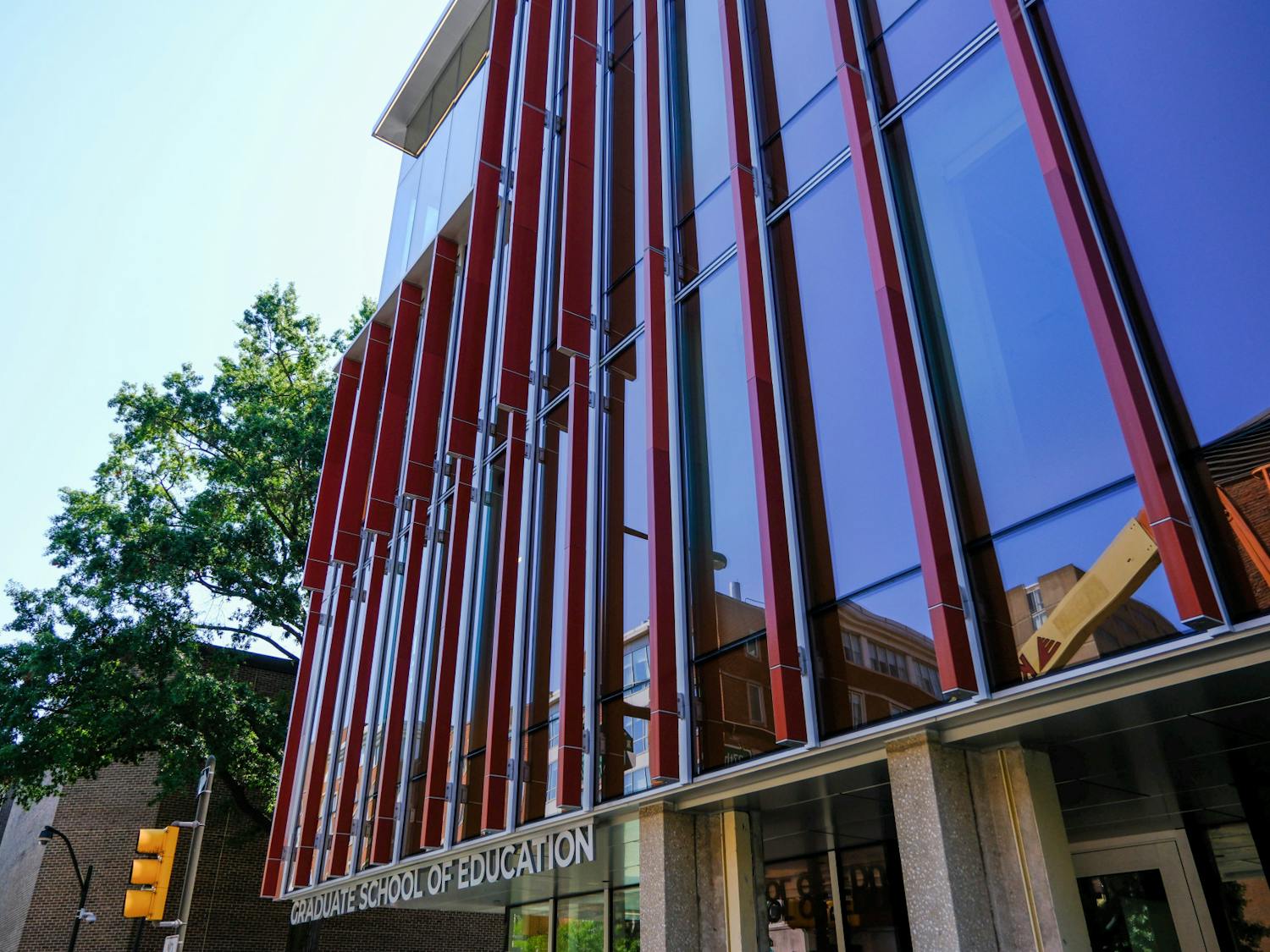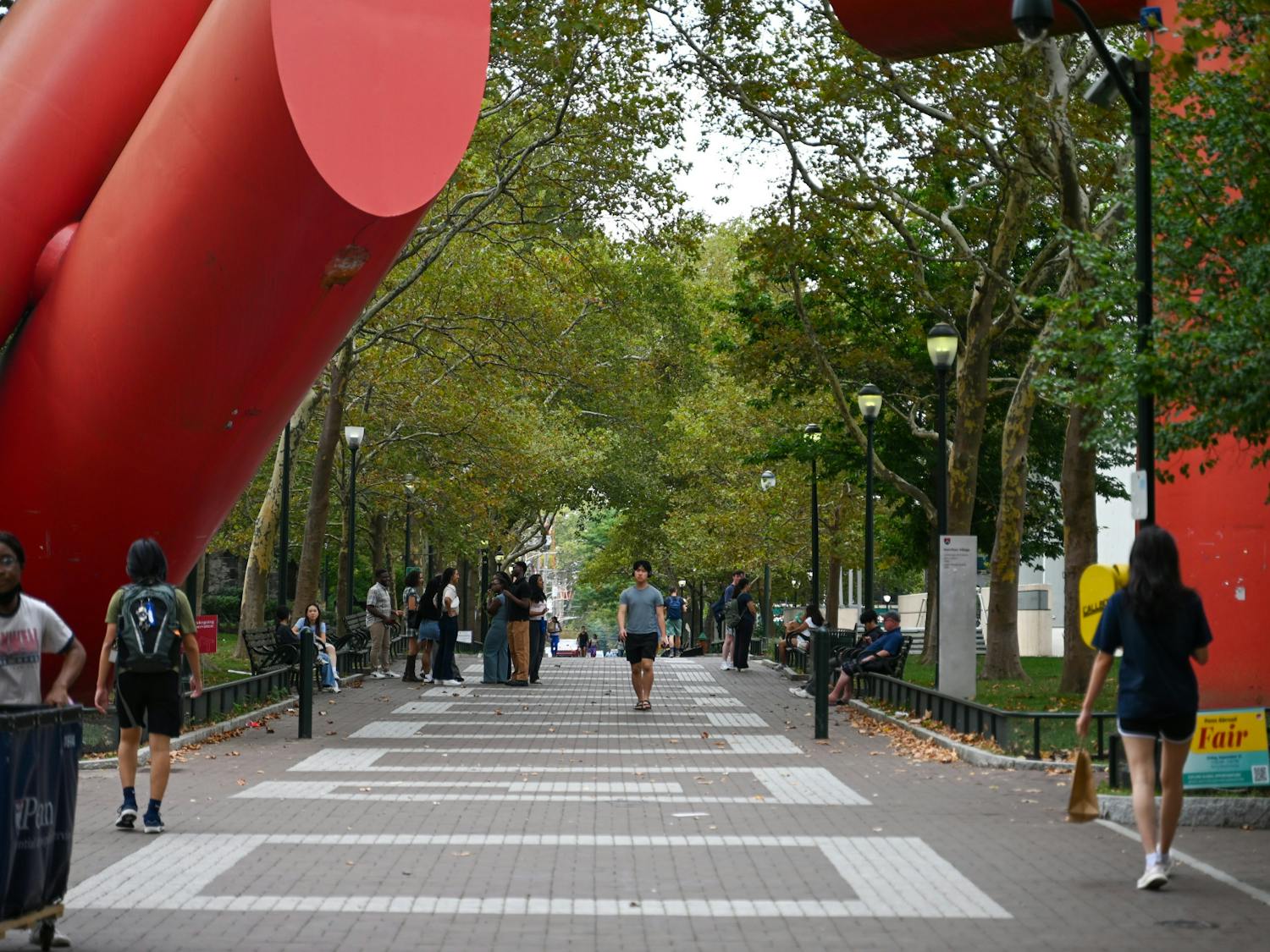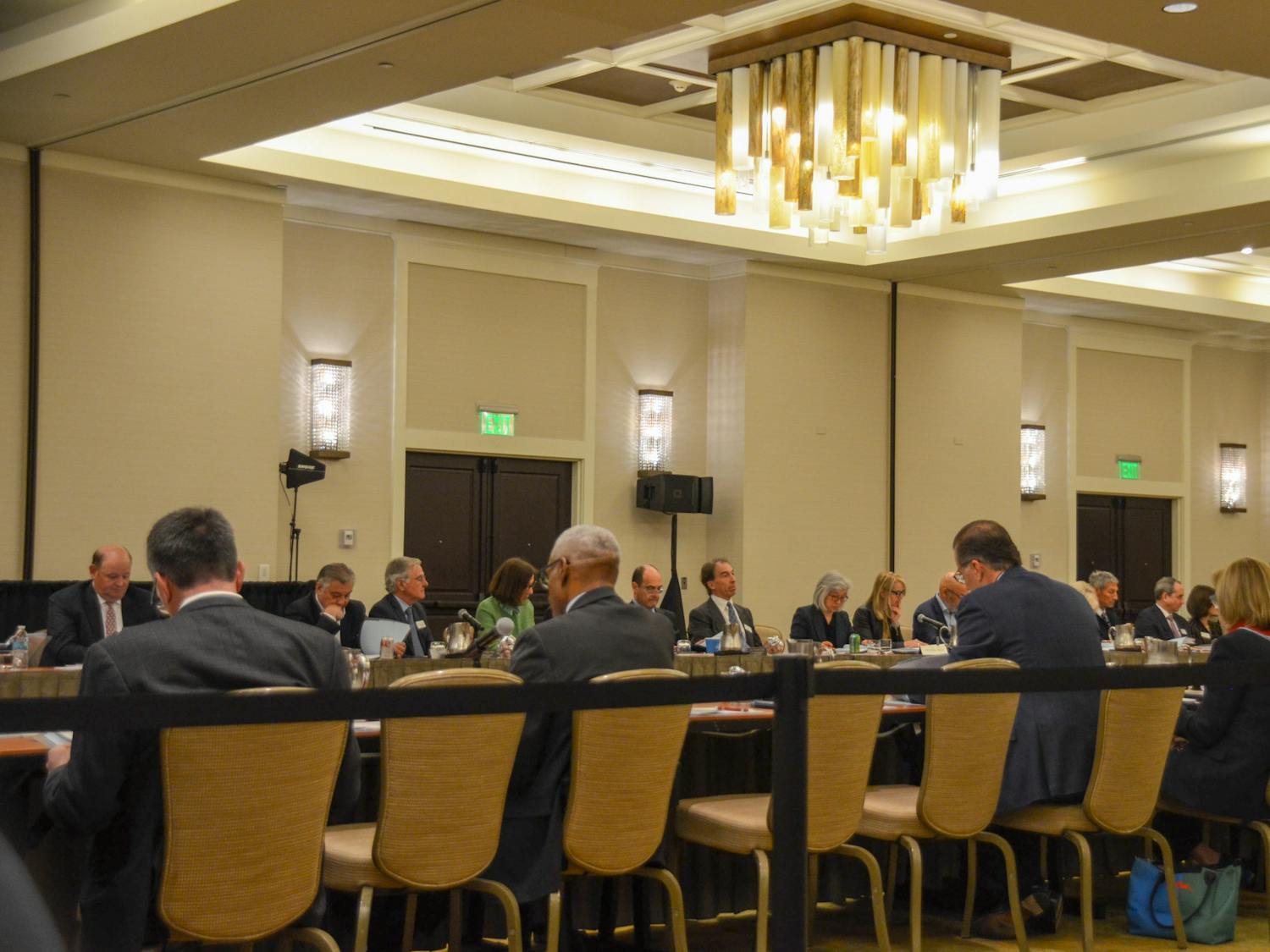Catching professors out of the office is a rare feat, but finding them at local hotspot MarBar may be easier than it appears.
Professors, students and community members inaugurated the monthly Penn Sciences Cafe, last night at the local lounge. Food and drinks were served during the lectures, which are meant "to take science out of the typical laboratory setting and treat it to a night on the town."
Trading lecture chairs for comfortable couches, the audience packed MarBar throughout the evening, as they enjoyed dinner and the drink of the night: "Gene-tinis," or apple-flavored martinis.
Biology professor David Roos an expert in the field of global infectious diseases, gave a brief speech on the field of genomics -- often confused with genetics --and discussed the future possibilities of the field thanks to advancements in technology.
Roos is the director of the Penn Genomics Institute.
"I've long felt that it's really quite a shame that scientists do what [they] do off in some closet, behind closed doors ... and there's no discussion with the broader public," he said.
Much of Roos' research focus is on infectious disease, such as SARS, AIDS, anthrax and malaria, which gained increasing worldwide attention recently -- especially in the cases of SARS and anthrax. Roos believes that diseases such as these, as opposed to illnesses such as cancer, are much more likely to be cured soon.
It is "much easier to kill something than figure out what went wrong," Roos said, explaining that killing off the gene that causes a disease is easier than finding why it is defective.
Roos also noted that "a shortage [in funding] is not as much of a problem as a shortage of bright ideas and hardworking, interested people."
After his talk, the audience was given the opportunity to ask questions.
A range of scientific issues were discussed, including genetically modified foods -- which have sparked worldwide controversy -- and the challenge of conducting effective chemotherapy, which is used to treat cancer.
Interest in the talk was especially high, apparent in the large volume of post-lecture questions.
"It definitely wasn't what I expected," deMauri Mackie, a College junior, said after the event. "I thought it would be a more technical seminar ... people are not so affiliated with research science, so it was a great start in getting the community involved."








